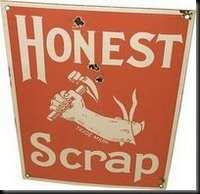 I am always amazed when folks with mortgages twice what I can imagine and others with two bright shiny new cars (bought against the value of their homes) find themselves, in down times, unable to get a grip. But when they get hungry and food becomes the most pervasive sense of their survival, things change. My amazement turns into near anguish. People need to eat and there is no reason they should not be able to eat, let alone have a healthy diet.
I am always amazed when folks with mortgages twice what I can imagine and others with two bright shiny new cars (bought against the value of their homes) find themselves, in down times, unable to get a grip. But when they get hungry and food becomes the most pervasive sense of their survival, things change. My amazement turns into near anguish. People need to eat and there is no reason they should not be able to eat, let alone have a healthy diet.
My friend Molly (not her real name) has found herself and family in the latter position. Her husband, a mortgage broker, is flat-lining on income in this "new" economy. She lovingly feeds her family of three on $20.00 per week now, no small feat in Orange County. But each week, as transportation costs rise, so do food costs on all fronts. They are now three months behind on their mortgage payment... and counting.
A largely vegetable diet used to be more practical, in some ways, than not, especially for one with a good sense of nutritional needs. But recently, I recoiled at buying string beans at $3.99/lb. When we grew them in triangular 20" three-pot sets with 6-foot 1"x1" reusable climbing supports tied together at the top and a foot placed in each pot (here the soil is quite inhospitable) we had green beans and their friends, Chinese peas, until we could barely eat another. We gave them away to friends and neighbors. They were grown from organic seeds and never saw a pesticide. They were lovingly tended and masticated appreciatively cooked and raw. My cost? Well, basically water. I should have been billed by God for the sheer enjoyment of tending them.
At $3.99/lb. for green beans (for example), how in the world could Molly continue to feed a healthy diet on $20.00/week? She can't. She can, however, get a little creative in growing some of her own.
Here, we mostly live under california live oak trees. That doesn't make growing vegetables impossible, nor does it imperil the oaks by over watering. Many vegetables can be grown in large plastic nursery pots or terra cotta pots. Lettuce can be grown in hanging pots, and ground vegetables grown in shallower pots of any sort. One can can get the pots off either freecycle.org or craigslist.com or perhaps even borrow them.
If Molly were, for instance, to compost, as I do, she could cut the acid-heavy oak mulch soil with vegetable garden soil (one way, there are many others) and cut the initial investment substantially. Smaller vegetables can be grown in all sized pots even the hardy zucinni where the vine's treasures needn't even touch the ground... growing over horizontally placed lattice gotten free as well. There are a million and one ways to make this kind of gardening, in bad soils, work without needing to grow them in more expensive media.
Here, in this wee community, we have a lot of community dinners and/or events with VERY large amounts of food. Most foods are prepared, not incoming. I cook for many of them and run the kitchen including being the BBQ person. Molly always volunteers and she is fabulous in the kitchen. Her family can eat free for that day, and I send her home with everything she can store in refrigerator or freezer to help. I just adore this woman who finds herself, now, struggling.
But this isn't the answer for her nor is it the answer for millions more here and in other countries. Creative home gardening can help a lot. But given the discussion on using land for fuel crops, the discussion becomes much more complex. As all things do, and should, they become the focus of political scrutiny.
Remember WE are the real politicians and it greatly behooves us to understand what makes the world tick... or not. When we vote, we give OUR individual power to another to exercise. We have a very serious stake in the outcome of elections. So please, do not go gently (or uninformed) into that goodnight. And always remember that "they" can become "we" quickly.
This is a rather remarkable article on the world wide situation regarding the democratization (or not) of food. Written by the author of Diet for a Small Planet, Frances Moore Lappé, this particular paragraph jumped out at me:
I’d hoped readers of Diet for a Small Planet would see this waste built into the post-World War II food system as only the surface layer explaining hunger. Beneath lies the deeper cause: the scarcity not of food but of democracy. Because no human being chooses hunger, hunger is proof that a person has been denied a voice in meeting survival needs. And, since a say in one’s future is the very essence of democracy, the existence of hunger belies democracy.
No one on this planet needs to go hungry. Period. It is politics that causes hunger. And as Moore points out, we all have a stake in fixing this problem.
Remember, you too could be hungry soon. Just like Molly, hunger is never in the equation of those who eat regularly.










|